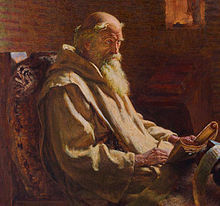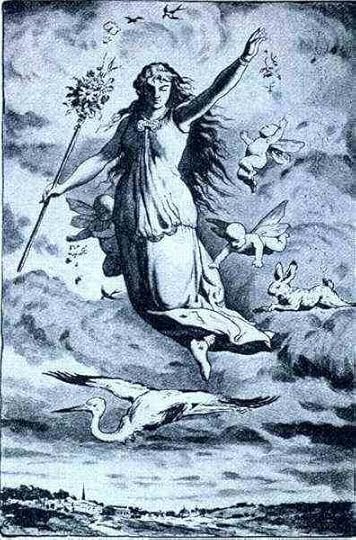Easter – a Christian festival based on a pagan past
Easter is upon us. It is of course the greatest of the Christian festivals, celebrating the death and resurrection of Christ. In most of the non English speaking world the world used for this festival is one form or another of Passover. For of course the death of Christ occurred at the time of the Passover and the Apostle Paul even refers to this in Ephesians. ”Christ our Pascha has been sacrificed for us.” Pascha here meaning passover.
Yet in the English speaking word the title for this festival is Easter. What is curious about this is that this is another example of where in the incoming Augustine mission and their successors did not abandon the pagan past but adopted it and built upon it.
Bede (672-735), the monk and great chronicler of the English Church talks about this in his work De ratione temporum (The reckoning of time). He works through the months of the Anglo Saxon year commenting on them and the pagan rites associated with them.

When he reaches April he says this: “Eosturmonath has a name which is now translated “Paschal month”, and which was once called after a goddess of theirs named Eostre, in whose honour feasts were celebrated in that month. Now they designate that Paschal season by her name, calling the joys of the new rite by the time-honoured name of the old observance. “
So then. Easter is named after the goddess Eostre. What do we know about her? The Old English goddess Eostre is replicated across the Germanic, Norse world and further in forms like Ostare, Ostara, Ostern, Eostra, Eostre, Eostur. She is a Fertility goddess and there are associations with new birth and the dawn. If we dig further back we find that the origins of the name Eostre is indeed a word for dawn or new light.
Traditional symbols associated with Ostara, the Germanic equivalent to Eoster are eggs, lambs and bunnys - not surprising as these are all symbols of new life and fertility.

The name though is very ancient. The is much speculation at this point but the Indo-European languages of course originate in the Fertile Crescent. So this same word can probably be traced back to something like 2000 BC to the Babylonian goddess of Sexuality, fertility and birth Ishtar which is pronounced in a way very close to the English word Easter.
So then some aspects of Easter do have elements of our Anglo-Saxon, Germanic pagan past with echoes perhaps of something older.




